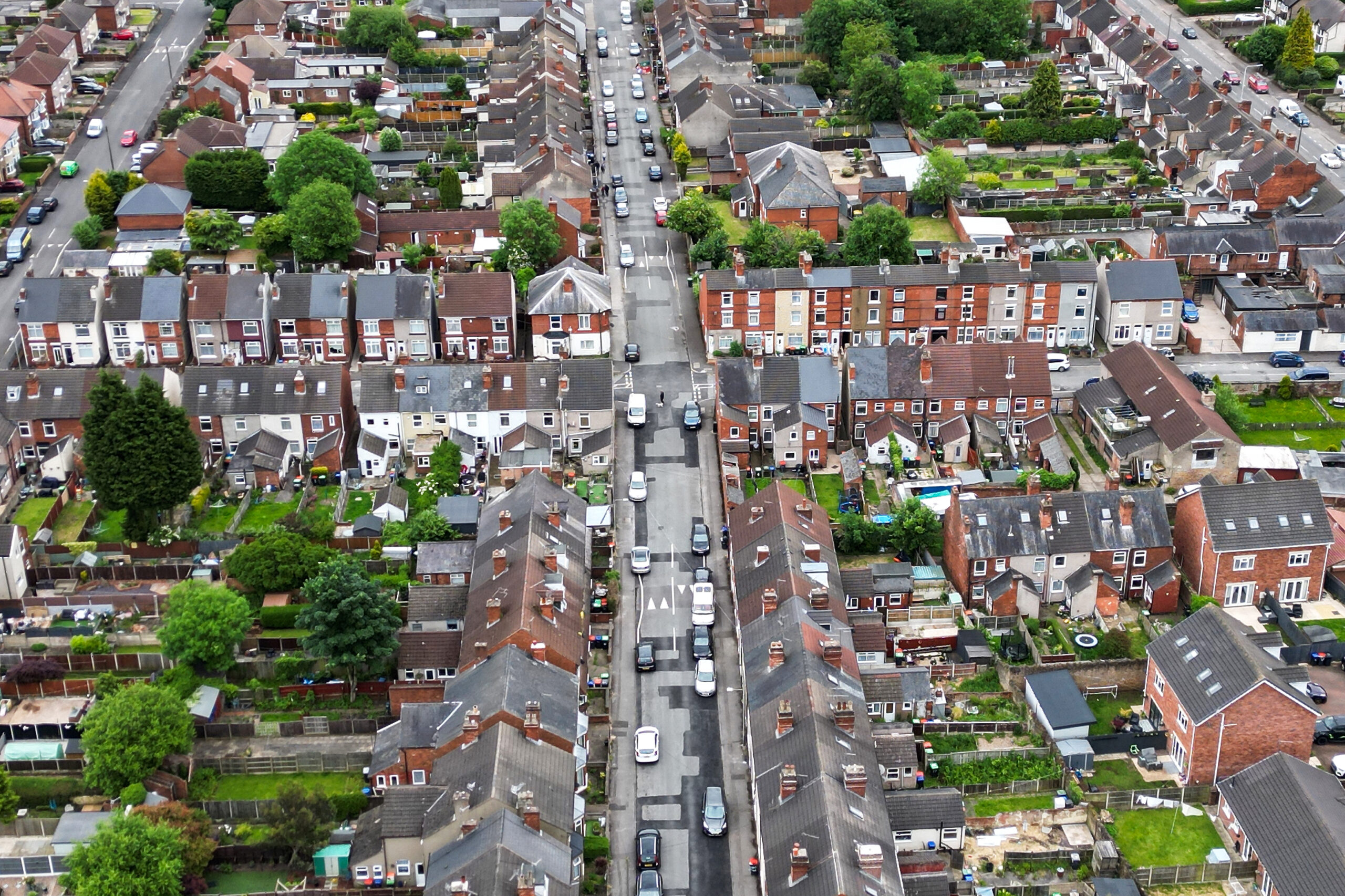
An aerial photograph taken on June 11, 2024 shows a general view of Kirkby in Ashfield, ahead of the UK general election on July 4. Agence France-Presse
SKEGNESS, United Kingdom — Britain’s last general election was all about leaving the European Union but this time around Brexit is hardly getting a mention — and residents of anti-EU bastion Skegness are unsurprised.
“Labour avoid it because they didn’t want it, the Conservatives avoid it because they cocked it up,” 58-year-old Danny Brookes, a former mayor of the down-on-its-luck English seaside town, told AFP.
Add in Brexit fatigue and barely healed scars from the divisive vote and it is easy to see why the main parties are largely avoiding the toxic issue before the July 4 poll.
READ: UK PM Sunak calls general election for July 4
“A bit like a terrible row in a family, it’s just a while before anyone really wants to go near it again,” said Chris Grey, a Brexit expert at Royal Holloway, University of London.
Former prime minister Boris Johnson won a landslide for the Conservatives in 2019, pledging to “Get Brexit Done” that saw the constituency of Boston and Skegness return its Tory MP with a bigger majority.
The area on England’s east coast in the county of Lincolnshire had the highest share of “leave” votes in the 2016 referendum when 75 percent of voters chose to exit the bloc.
An influx of migrants from Eastern Europe coupled with general dissatisfaction at the political establishment over low wages and lack of jobs were credited with fueling the vote.
READ: UK’s Sunak to unveil manifesto promising ‘financial security’
Johnson took Britain out of the EU at the beginning of 2020, before he was forced from office by numerous scandals that have since left fellow Brexit supporter Rishi Sunak in 10 Downing Street.
Let down
Brookes voted for Brexit but feels that promises made by its main cheerleaders during the campaign — particularly over immigration, which has since hit record highs – were broken.
“A lot of what they said has not come true. They’ve let us down,” said the councillor at the cafe he owns on Skegness high street, citing the housing of asylum seekers in hotels in the town.
Others in Skegness, home to 21,000 people and where fairground rides and amusement arcades compete for space with sweet shops and ice-cream stalls, express similar Brexit regrets.
Pete Ashmore, a 70-year-old retiree, voted “leave” eight years ago but says he would cast his ballot differently if offered the chance again.
“It sounded like a good idea,” he said on the promenade, with two UK flags fluttering from a basket attached to the front of his mobility scooter.
“But I had my suspicions it wouldn’t work, and I think they were right.”
Polls now suggest that most Britons think Brexit was wrong. Those who still maintain it was the right thing to do tend to say the Conservatives failed to properly implement it.
“(So) for the Tories there’s nothing much gained to be talking about it,” says Grey, a professor of organization studies and author of “Brexit Unfolded”.
The smaller opposition Liberal Democrats have pledged to rejoin the European single market sometime in the future.
The Scottish National Party would apply to rejoin the EU if Scotland, which mostly voted against Brexit, gains independence, although that prospect is not currently on the horizon.
Rejoin?
Labour leader Keir Starmer, a former Brexit spokesman who voted “remain” and wanted a second vote on the issue, has ruled out returning to the European single market, customs union, or free movement.
But he does want to negotiate a closer relationship with the EU, including a new defence pact.
That future relationship could include a youth mobility scheme recently proposed by the European Commission which would make it easier for Britons aged 18-30 to live, study and work in the EU.
Labour, though, talks little about Europe because doing so would enable the Tories to fight the entire campaign on defending Brexit, said Grey, while the economy and health are voters’ main concerns.
“You could argue that politicians are essentially just responding to the public mood,” he added.
In Skegness, 55-year-old Mandy Mann, tucking into a plate of fish and chips and mushy peas in the town centre, thinks Brexit should be on the ballot.
“We’re paying more now than when we were in the EU,” she says, citing a cost-of-living crisis that has crippled households with high energy bills and mortgage payments, adding that she would vote to rejoin.
Grey suspects that if Labour wins a whopping majority as expected, then Labour backbenchers in Starmer’s government could push for closer alliances with Europe, eventually putting Brexit back on the agenda.
“There will potentially be a significant conversation about rejoining towards the 2029 election,” he predicts.

